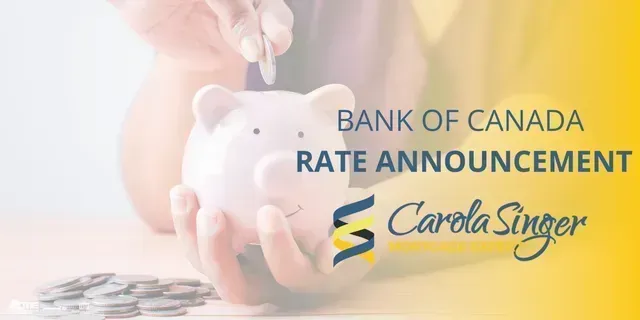4 Ways to Take Control of Your Finances in 2021
Carola Singer • January 5, 2021

The beginning of a new year is an ideal time to review your finances. Hopefully, with the wild ride of 2020 behind us, 2021 is a time we can all move forward. Regardless of where you’re at financially or your financial goals, here are four areas to consider as you take control of your finances in 2021.
Take control of your spending.
If you really want to get ahead, you’ll want to take control of how you spend your money. You do this by getting clarity around how much money you have to spend (income), what you’re required to spend it on (expenses), and then everything else (discretionary spending).
Track your spending and come up with a budget using a spreadsheet. If that seems daunting, consider one of the many financial programs available online. If you’re looking for a little more direction, there are many independent Fee-Only Financial Planners in Canada who can provide you with personalized financial advice for a small fee. Any steps you take here will be better than not taking any steps at all.
Take control of your debt.
If you have debt, you’ll want a plan to get rid of that debt. Start by making a comprehensive list of all the money you owe, the amounts, interest rates, and payment schedules. The key to taking control of your debt is to know exactly how much debt you have.
Make the minimum payments on all your debts while focusing on zeroing the highest interest rate debt first. Once that has been paid off, don’t let up, roll all your payments into the next debt, and so on, until you’re debt-free. Once you’re debt-free, consider rolling all the payments you’ve been making to pay out your debt into your savings account!
Take control of your credit.
How you manage your existing credit determines the credit you’ll be extended in the future. If your goal is to purchase a property, you’ll want to make sure your credit score reflects a history of payments being made as agreed.
Now, even if you’ve made all your payments on time, your credit report might not reflect that, especially if you’ve deferred any payments due to COVID-19. Estimates show that at least 20% of credit reports contain errors. By regularly reviewing your Equifax and Transunion credit bureaus, you can ensure your credit reports don’t have any errors or contain information that might hinder you from getting credit in the future. It's always a good idea to get out ahead of problems before they become problems.
Take control of your mortgage.
If you’re like most Canadians, paying off your mortgage will be your single biggest expense in life, while at the same time, those payments will help build your greatest asset; home equity. Ensuring your mortgage is working for you (and not the bank) is a crucial part of your financial health.
Take control of your mortgage by working with an independent mortgage professional to review your current mortgage and compare it to what is available on the market. If there is money to be saved, it should be saved. The goal of any mortgage should be to lower the overall cost of borrowing over the life of the mortgage. Annual reviews help you accomplish this.
In fact, with all the economic uncertainty caused by COVID-19, mortgage interest rates are currently very low. Now might be a great time to renegotiate the terms of your mortgage, especially if you haven’t done that within the last year. There is no cost to review your mortgage. I would love to outline all your options!
If you’d like to discuss any of this, please don’t hesitate to contact me anytime.
RECENT POSTS

Bank of Canada maintains policy rate at 2¼%. FOR IMMEDIATE RELEASE Media Relations Ottawa, Ontario January 28, 2026 The Bank of Canada today held its target for the overnight rate at 2.25%, with the Bank Rate at 2.5% and the deposit rate at 2.20%. The outlook for the global and Canadian economies is little changed relative to the projection in the October Monetary Policy Report (MPR). However, the outlook is vulnerable to unpredictable US trade policies and geopolitical risks. Economic growth in the United States continues to outpace expectations and is projected to remain solid, driven by AI-related investment and consumer spending. Tariffs are pushing up US inflation, although their effect is expected to fade gradually later this year. In the euro area, growth has been supported by activity in service sectors and will get additional support from fiscal policy. China’s GDP growth is expected to slow gradually, as weakening domestic demand offsets strength in exports. Overall, the Bank expects global growth to average about 3% over the projection horizon. Global financial conditions have remained accommodative overall. Recent weakness in the US dollar has pushed the Canadian dollar above 72 cents, roughly where it had been since the October MPR. Oil prices have been fluctuating in response to geopolitical events and, going forward, are assumed to be slightly below the levels in the October report. US trade restrictions and uncertainty continue to disrupt growth in Canada. After a strong third quarter, GDP growth in the fourth quarter likely stalled. Exports continue to be buffeted by US tariffs, while domestic demand appears to be picking up. Employment has risen in recent months. Still, the unemployment rate remains elevated at 6.8% and relatively few businesses say they plan to hire more workers. Economic growth is projected to be modest in the near term as population growth slows and Canada adjusts to US protectionism. In the projection, consumer spending holds up and business investment strengthens gradually, with fiscal policy providing some support. The Bank projects growth of 1.1% in 2026 and 1.5% in 2027, broadly in line with the October projection. A key source of uncertainty is the upcoming review of the Canada-US-Mexico Agreement. CPI inflation picked up in December to 2.4%, boosted by base-year effects linked to last winter’s GST/HST holiday. Excluding the effect of changes in taxes, inflation has been slowing since September. The Bank’s preferred measures of core inflation have eased from 3% in October to around 2½% in December. Inflation was 2.1% in 2025 and the Bank expects inflation to stay close to the 2% target over the projection period, with trade-related cost pressures offset by excess supply. Monetary policy is focused on keeping inflation close to the 2% target while helping the economy through this period of structural adjustment. Governing Council judges the current policy rate remains appropriate, conditional on the economy evolving broadly in line with the outlook we published today. However, uncertainty is heightened and we are monitoring risks closely. If the outlook changes, we are prepared to respond. The Bank is committed to ensuring that Canadians continue to have confidence in price stability through this period of global upheaval. Information note The next scheduled date for announcing the overnight rate target is March 18, 2026. The Bank’s next MPR will be released on April 29, 2026. Read the January 28th, 2026 Monetary Report

Going Through a Separation? Here’s What You Need to Know About Your Mortgage Separation or divorce can be one of life’s most stressful transitions—and when real estate is involved, the financial side of things can get complicated fast. If you and your partner own a home together, figuring out what happens next with your mortgage is a critical step in moving forward. Here’s what you need to know: You’re Still Responsible for Mortgage Payments Even if your relationship changes, your obligation to your mortgage lender doesn’t. If your name is on the mortgage, you’re fully responsible for making sure payments continue. Missed payments can lead to penalties, damage your credit, or even put your home at risk of foreclosure. If you relied on your partner to handle payments during the relationship, now is the time to take a proactive role. Contact your lender directly to confirm everything is on track. Breaking or Changing Your Mortgage Comes With Costs Dividing your finances might mean refinancing, removing someone from the title, or selling the home. All of these options come with potential legal fees, appraisal costs, and mortgage penalties—especially if you’re mid-term with a fixed-rate mortgage. Before making any decisions, speak with your lender to get a clear picture of the potential costs. This info can be helpful when finalizing your separation agreement. Legal Status Affects Financing If you're applying for a new mortgage after a separation, lenders will want to see official documentation—like a signed separation agreement or divorce decree. These documents help the lender assess any ongoing financial obligations like child or spousal support, which may impact your ability to qualify. No paperwork yet? Expect delays and added scrutiny in the mortgage process until everything is finalized. Qualifying on One Income Can Be Tougher Many couples qualify for mortgages based on combined income. After a separation, your borrowing power may decrease if you're now applying solo. This can affect your ability to buy a new home or stay in the one you currently own. A mortgage professional can help you reassess your financial picture and identify options that make sense for your situation—whether that means buying on your own, co-signing with a family member, or exploring government programs. Buying Out Your Partner? You May Have Extra Flexibility In cases where one person wants to stay in the home, lenders may offer special flexibility. Unlike traditional refinancing, which typically caps borrowing at 80% of the home’s value, a “spousal buyout” may allow you to access up to 95%—making it easier to compensate your former partner and retain the home. This option is especially useful for families looking to minimize disruption for children or maintain community ties. You Don’t Have to Figure It Out Alone Separation is never simple—but with the right support, you can move forward with clarity and confidence. Whether you’re keeping the home, selling, or starting fresh, working with a mortgage professional can help you understand your options and create a strategy that aligns with your new goals. Let’s talk through your situation and explore the best path forward. I’m here to help.



